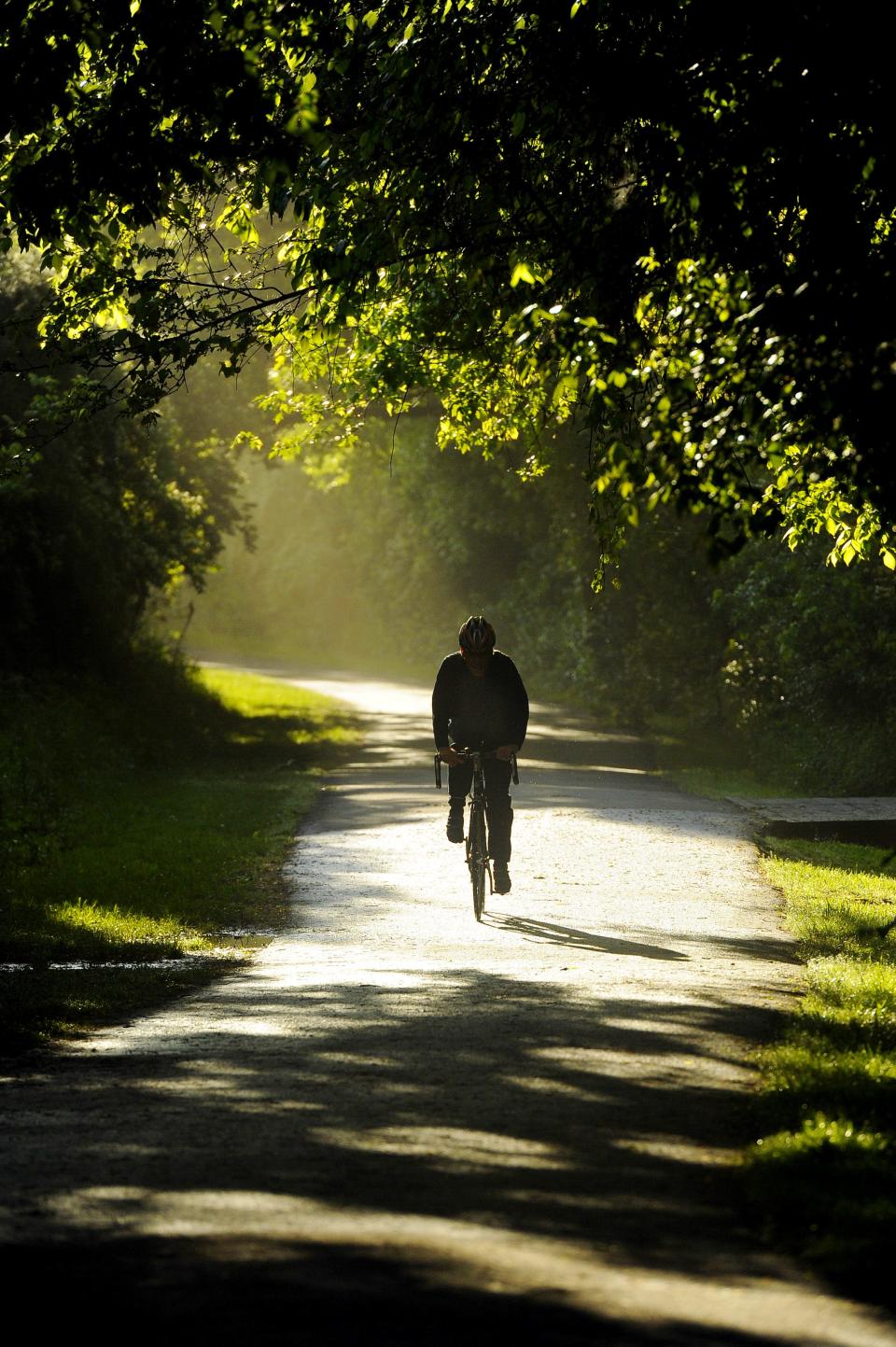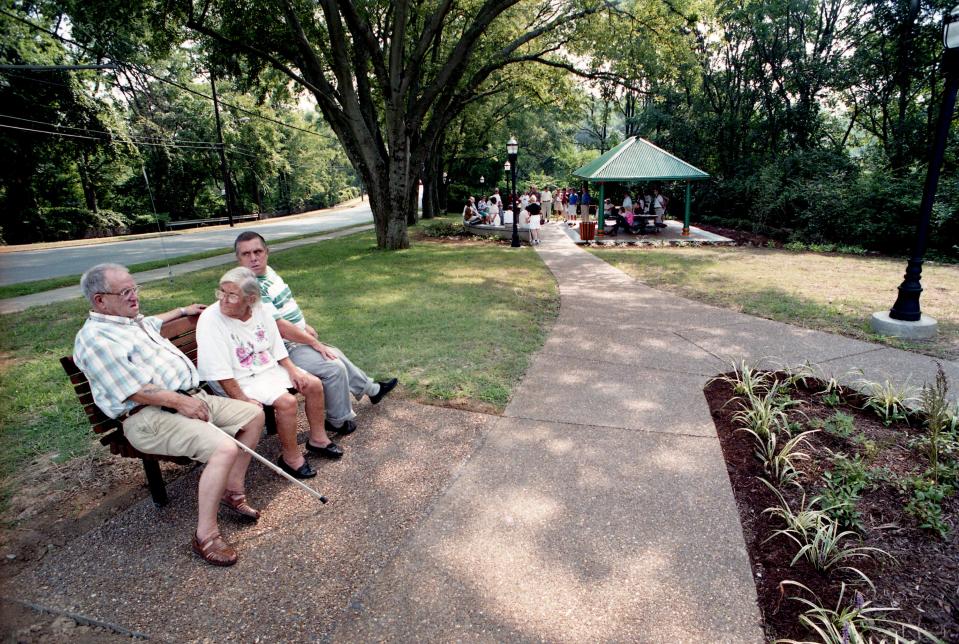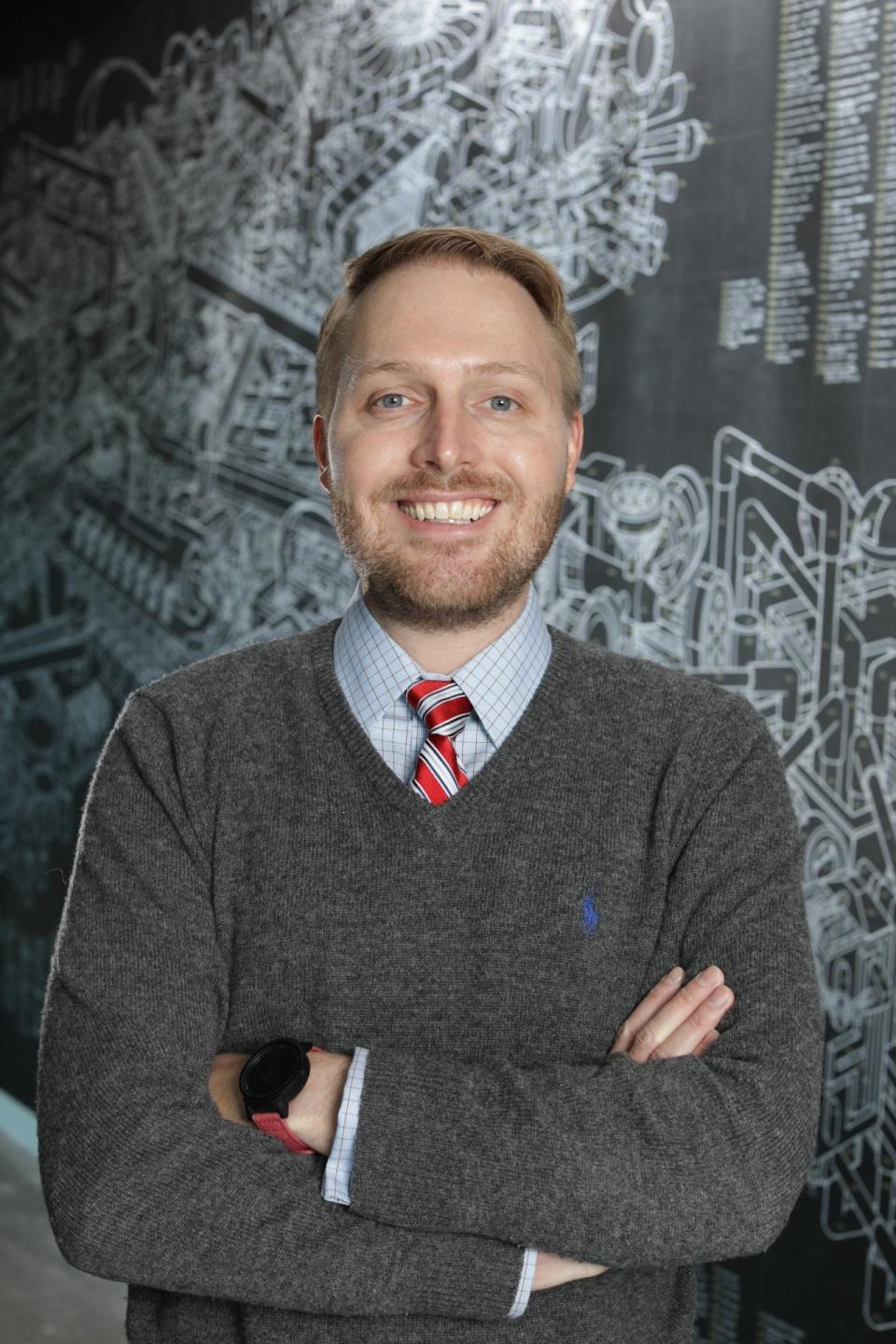Why developers should help pay to expand Nashville’s parks and greenways system | Opinion
As one of the thousands who have moved to Nashville in recent years, I have admired the city’s vision for managing its unprecedented growth to make room for families like mine.
I was once a city planning commissioner and I understand the challenges of meeting housing needs, while also serving the existing community. Such challenge is currently unfolding in my community of Bellevue.
A private developer has proposed to build apartments on land surrounded by the Harpeth River, a railroad track and over 50 acres of protected — but currently inaccessible — park land. As part of its bid to secure the zoning needed to build the apartments, the developer has offered to give 20 acres of the land closest to the river to Metro Parks.
They've also offered to pay for the construction of a greenway extension, a multimodal bridge to provide access to the unused park land, protected bike lanes on the adjoining street and a tunnel under the railroad track that would connect to the existing Harpeth River Greenway to a nearby Metro Park & Ride location.
Hear more Tennessee Voices: Get the weekly opinion newsletter for insightful and thought provoking columns.
This will put the city's smart growth goals to the test
I understand individuals living near any proposed developments have concerns. Adding the housing our community drastically needs is great until it happens next door.
However, I am excited for this project. Connecting our community to the greenway will be an amazing benefit. I won’t have to drive my 8-year-old son miles out of the way to reach the nearest greenway entrance on the other side of the Harpeth when we go biking together.
Bellevue Park, which is currently inaccessible, could become a great place for families. I could play there with my 2-year-old daughter instead of driving her 5 miles away to Red Caboose Park.
Kids might even be able to bike to the new James Lawson High School from anywhere in Bellevue due to this greenway expansion.
This proposal is just one example that will truly put to the test what the city has repeatedly articulated in many plans calling for smart growth, parks and greenways development, connectivity among our neighborhoods and improving multimodal transportation and community health.

Examining effort to expand parks and greenways

If city plans like NashvilleNext, Plan to Play, WalknBike and the Metro Nashville Transportation Plan are meant to be more than aspirational, then proposed developments like this one in Bellevue should be a slam dunk.
Metro Parks’ Plan to Play sheds light on what the community says it wants with its parks and greenways system and lays out a range of strategies to accomplish it.

For example, an astonishing 94% of citizens surveyed said they support protecting parks and acquiring new land to help Metro Parks gain 4,500 acres of park land and 130 acres of greenway land by 2027. This is something that is desperately needed if our park system is to keep up with the city’s growth.
Hear from Tennessee's Black Voices: Get the weekly newsletter for powerful and critical thinking columns.
Yet, only 29% felt the taxpayers should pay for the estimated $534 million needed to acquire park land.
To address funding concerns, the plan calls for diversifying strategies to relieve the burden from the taxpayer, including working with private developers to piece the greenway puzzle together.
Among the high-priority missing sections of greenways identified in the plan is the very tract of land in Bellevue the developer has offered to give to the city for free. Plus, the list of public improvements associated with this land donation would cost the developer nearly $4 million, and taxpayers wouldn’t pay a penny.
Is this example in Bellevue not exactly what Metro leaders have envisioned in its growth planning?

Your state. Your stories. Support more reporting like this.
A subscription gives you unlimited access to stories across Tennessee that make a difference in your life and the lives of those around you. Click here to become a subscriber.
If you’re like me and are optimistic that Nashville can accomplish its smart growth goals, while ensuring that development happens in a way that benefits the community, it’s imperative that we speak up for projects that deliver on that promise.
We must contact our Metro Council member and the Metro Planning Department. Development will continue throughout Davidson County for the foreseeable future. As it does, please encourage our city officials to support projects that help Nashville’s vision for smart growth become a reality.
Wes Finley lives in Bellevue where he works as a marketing specialist. He formerly served as a city planning commissioner in Belmont, California.
This article originally appeared on Nashville Tennessean: Nashville parks and greenways expansion should fall on developers

